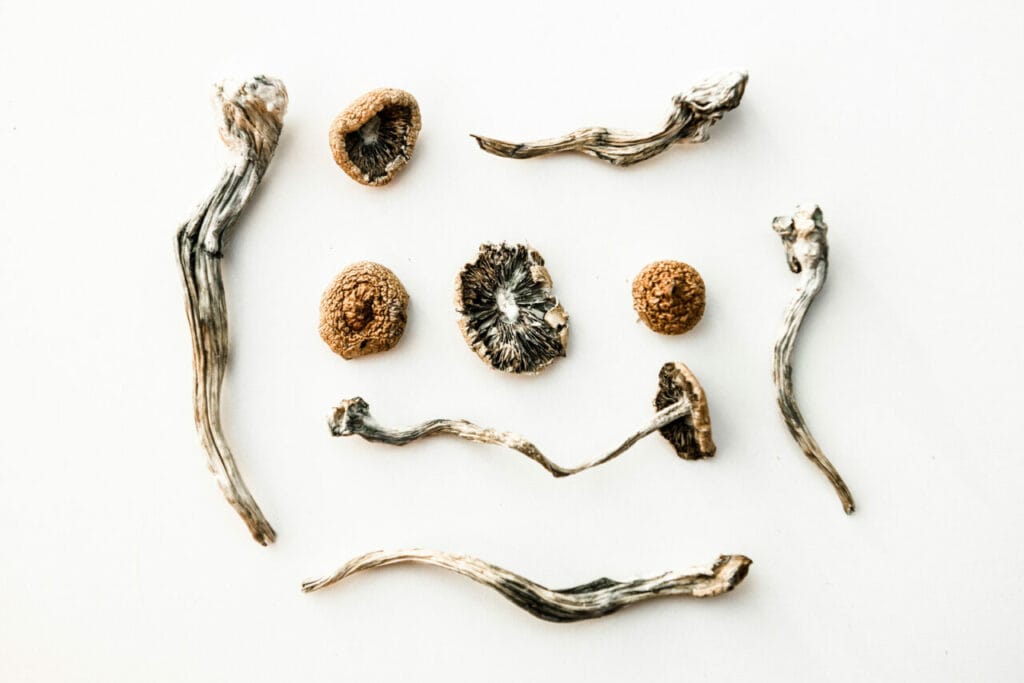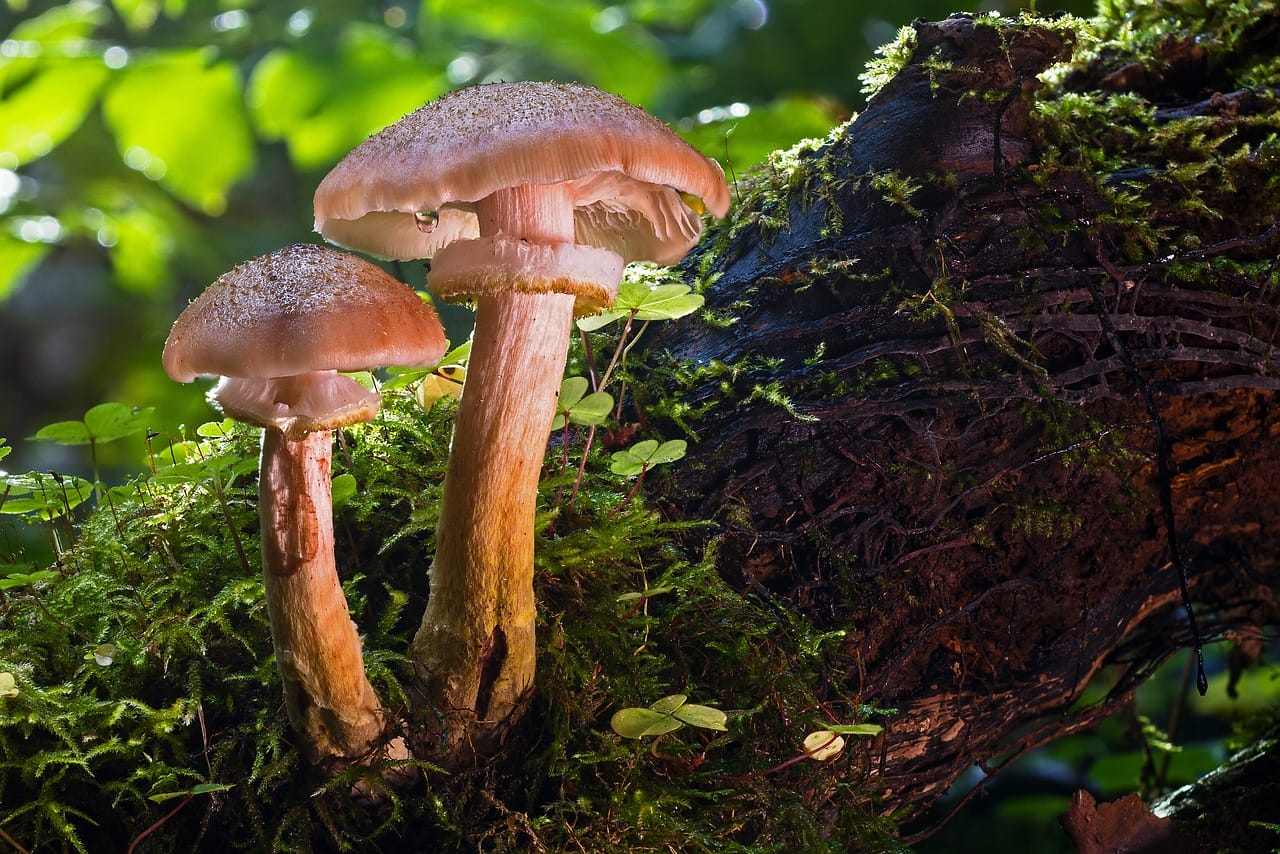Initially, many Canadians viewed magic mushrooms primarily as a psychedelic substance used for recreational purposes. However, upon studying the active component, psilocybin, scientists uncovered its potent effectiveness in treating various mental health conditions.
As more information emerges, our comprehension of psilocybin’s uses continues to evolve. Increased awareness simplifies the process for individuals to acquire these products via magic mushroom delivery services. A recent study underscores its impact on human consciousness. Could this shed light on its significant influence on the human brain? Let’s delve further into this fascinating exploration of magic mushroom products.
Main Takeaways:
- Psychedelic magic mushrooms have played a role in shaping the cognitive functions of early humans, aiding their survival.
- Mushrooms’ contributions to neurological health are significant due to their ability to alleviate symptoms of PTSD, depression, and anxiety.
- The impact of psilocybin on consciousness and brain function may have fostered creativity, introspection, and abstract thinking.

Historical Usage and Importance of Magic Mushrooms
Historical evidence suggests that our ancestors have been capitalizing on the power of psychedelic magic mushrooms from ancient times. Indigenous societies utilized them in sacred rituals and traditional ceremonies to honor their gods. They flourish worldwide, especially in subtropical and tropical areas, encompassing South and Central America, the Caribbean, Southeast Asia, and Africa.
The Function of Shrooms in Ancient Societies
The Indigenous communities of Mexico have historically relied on these fungi for spiritual enlightenment, divine interaction, and religious rituals. The Aztecs of South America called it “God’s Flesh,” employing it in healing ceremonies.
Archaeological discoveries point to usage dating back to:
- Circa 10,000 years ago in Australia
- Almost 7,000 years ago in North Africa
- Nearly 6,000 years ago in Spain.
Some researchers interpret these findings as evidence of the extensive historical consumption of psilocybin. When people ingested mushrooms, they entered a state of joy, with hallucinations often marked by intricate geometric and visual patterns.
Mushrooms’ Contribution to Bronze Age History in Spain
In the mid-1990s, scientists discovered remnants, especially hair strands from approximately 200 Bronze Age communities, hidden within a cave in Minorca, Spain. The cave’s sealed entrance due to fallen debris remarkably preserved the artifacts. The analysis revealed that these hair samples contained traces of three alkaloids, substances known to influence the human mind and induce altered states of consciousness.
These discoveries provide powerful evidence into the reasons and methods ancient societies used these substances. Surprisingly, achieving an altered state of consciousness was actually a common practice during those times. However, the question of how these substances influenced human evolution still lingers.
Psilocybin and the “Big Bang Theory” of Human Consciousness Evolution
Recently, there has been a revival of psychedelic research, reinforcing the hypothesis that psychedelics contributed to the evolution of consciousness. This idea, referred to as the stoned ape theory, was proposed by ethnobotanist Terence McKenna. The theory implies that psychedelic consumption may have influenced the cognitive and cultural evolution of humans.
According to Dr. Thomas Falk, a Philosophy and Education professor at the University of Dayton, this theory could potentially account for the so-called “creative explosion” witnessed in Homo sapiens approximately 40,000 years ago, signifying a substantial leap in early human cognitive capabilities.
It is postulated that psychedelics enabled early humans to exist in self-created realities. Over time, their enhanced cognitive abilities allowed them to reflect these experiences in their physical world.
In his work “Food of the Gods“, Terence McKenna presented his arguments supporting the stoned ape theory, highlighting its roots in ancient shamanistic practices and a speculated variety of plants and fungi.
“Potential to Trigger Neurological and Psychological Transformations”
Psychoactive substances have the potential to induce significant neurological and psychological changes. These transformations could have played a critical role in the development of our species.
The study, taking a multi-faceted approach that combines biology, ethnobotany, and neuroscience, closely examines existing research on the role of psilocybin in human consciousness. It hypothesizes that as early humans’ surroundings shifted from forests to grasslands, their exposure to animal dung—and consequently these fungi—increased. The “stoned ape” theory, referenced in the study, proposes that this change in diet could have triggered significant brain changes in early hominids.
Potential Effects of Psychoactive Substance Consumption
The possible consequences of consuming these fungi could span from enhanced hunting and scavenging skills, an uptick in sexual appetite, to heightened sensory perception. Coupled with psilocybin’s effect on consciousness and brain function, it’s conceivable that these factors might have fostered creativity, introspection, and abstract thinking, which are fundamental to the development of language.
The Peruvian researchers behind the study stress the need for more research into these substances’ impact on the brain and human evolution. While it’s clear that they’ve affected brain regions associated with memory, decision-making, and introspection, the evolutionary implications are still an active area of study.
An independent genetic study suggests that magic mushrooms emerged around 67 million years ago. Human consumption of these fungi started millions of years ago, well before the advent of marijuana.
What are Dried Magic Mushrooms?
These mushrooms contain a hallucinogen called psilocybin. The effects can differ, depending on individual tolerance, body weight, and method of consumption. Here are some expected outcomes:
- Intense joy
- A feeling of peace
- Spiritual enlightenment and introspection
- A dreamy state of feeling disconnected from one’s physical environment
- Changed visuals, such as seeing light halos and vivid colors
- Enhanced sense of well-being
While some use it for recreational purposes, many use it for its medicinal properties, particularly for its positive effects on brain health.
Effects on Neurological Health
The active ingredient alters one’s mood, perception, and cognition by influencing the serotonin receptors in the prefrontal cortex. This interaction leads to enhanced cognitive abilities, including amplified visual and auditory experiences, which in turn improve task performance.
Connection to the Past
Looking back to our early ancestors, particularly the so-called “stoned apes,” we can apply the same concept. Their discovery and use of these fungi, particularly during their ecological migration from forest to grassland habitats, increased their exposure to animal feces and in turn, their consumption of these mushrooms. The study references the “stoned ape” theory, suggesting that this change in diet could have initiated significant evolution within the brain structures of early hominids.
The intake of psilocybin mushrooms may have influenced the development of their consciousness and cognitive abilities, possibly accounting for the acquisition of key survival skills.
Present and Future Interactions
Recent research has discovered that people suffering from ailments such as cluster headaches, anxiety, anorexia, obsessive-compulsive disorder, PTSD, and depression often have low serotonin levels. While selective serotonin reuptake inhibitors (SSRIs) are the standard treatment, they can take a significant amount of time to yield results. Conversely, shrooms can quickly induce changes in brain neuron connectivity.
Current Psychedelic Research – Clinical Trials
From the early 2000s onwards, scientists have been exploring innovative treatments tailored to individual patient needs for a range of psychiatric and behavioural disorders.
Due to its ability to infiltrate the central nervous system and enhance cognitive function, it has proven effective in therapy. Research progress in 2020 suggests that psychedelic therapy using psilocybin products significantly alleviates severe depression.
According to Matthew Johnson, a professor at Johns Hopkins Medicine, these substances alter the way different brain systems communicate. There’s a noticeable increase in connectivity between brain regions that don’t typically interact. Conversely, areas that usually have high interaction show decreased communication.
This induced chaos is not merely a side effect, but carries potential therapeutic benefits. Individuals suffering from depression often find themselves trapped in cycles of self-critical, repetitive thoughts that worsen their condition. Psychedelics interrupt these patterns, enabling individuals to escape from their deeply ingrained negativity during a psychedelic experience. This leads to more flexible thinking and enhanced ability to manage critical
Embark on a Healing Journey: Order Magic Mushrooms Online
An extensive variety of these controlled substances can be purchased online. Select from an array that is safe and laboratory-verified, mitigating the risk of accidentally buying poisonous mushrooms. Reliable vendors assure the quality and safety of the products on offer.
| Product | Psilocybin Content | Psilocin Content | Benefits |
| Enigma | 0.76% | 0.07% | Heightens Focus, Induces Uplifting Effects |
| Atlantic Treasure Coast | 0.59% | 0.08% | Boosts Concentration, Stimulates Creativity, Fosters Neuroplasticity |
| Blue Magnolia | 0.58% | 0.08% | Augments Memory, Assists in Managing Depression and Anxiety |
| Cambodian | 0.45% | 0.06% | Supports in Treating PTSD and Anxiety, Facilitates Substance Abuse Recovery, Enhances Mood |
Unmasking the Hidden Potency of Magic Mushrooms
Our present-day advancements, including civilizations, urbanizations, and societies, are the products of myriad developments. Even if the stoned-ape hypothesis remains theoretical, scientists are continually uncovering evidence supporting the crucial role psilocybin may have played in human evolution.
If you’re in pursuit of expedited cognitive growth, Shroom Delivery Canada’s magic mushroom delivery is your ultimate solution. We offer an extensive range of top-notch shrooms from A to Z, with fast shipping available across British Columbia and beyond.
Experience the future of personal growth — peruse our collection of high-grade psychedelics online in Canada today.
Commonly Asked Questions
What variety of shrooms did ancient civilizations consume?
Various types of fungi exist worldwide, hence there isn’t a singular type consumed universally. Some societies favored the well-known liberty caps, while others opted for Psilocybe cubensis. Most of them either consumed these mushrooms raw or crafted edible concoctions like tea blends.
What is the role of psychedelics in contemporary human development?
In the modern era, psychedelics primarily function by activating the 5-HT2A receptor subtype. This interaction has been found to be useful in managing stress-related disorders and significantly impacting creativity and social behavior. Such outcomes could enhance adaptability and survival, especially in societies that rely heavily on knowledge and social interdependency.
How have spiritual practices involving mushrooms influenced human evolution?
Indeed, spiritual rituals involving mushrooms have played a role in human evolution by shaping cultural, religious, and social frameworks. They foster a deep sense of unity, innovation, and communal cohesion.
Suggested Reads:





